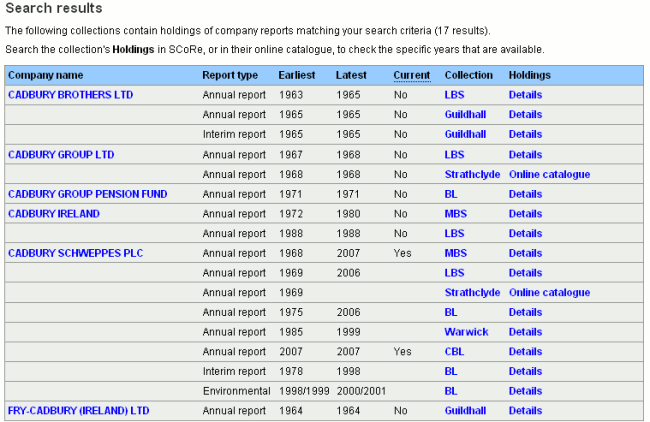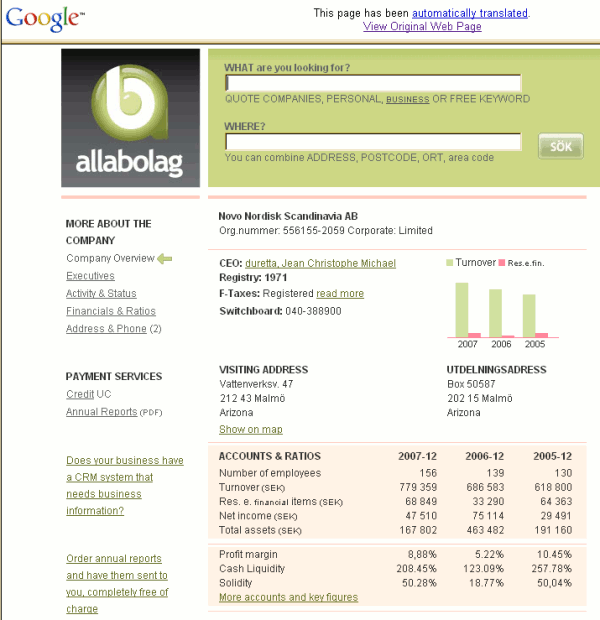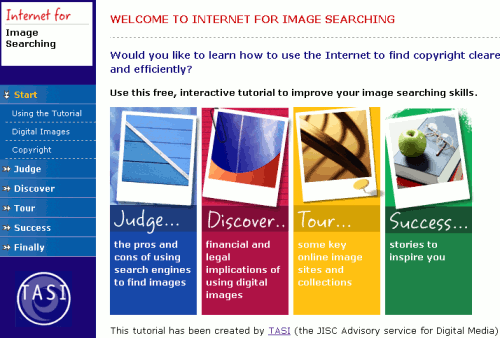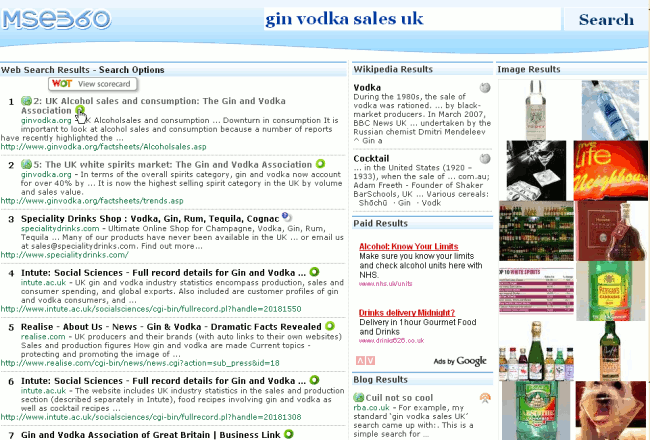RefSeek is a a new search engine that “aims to make academic information easily accessible to everyone”. There is very little information on how it works other than it searches more than one billion documents, including web pages, books, encyclopaedias, journals, and newspapers. A few test searches suggest that it searches just .edu. ac.uk, .org web and .gov web sites but not .org.uk or .gov.uk. Straightaway, those of us in the UK are missing out on a large chunk of scientific information and data as are other countries whose academic web domains do not include an organisation type such as. edu or ac. My searches on zeolites, for example, failed to pick up papers on Zurich University’s web site (http://www.uzh.ch/). Also, .org and .org.uk domains can be bought by anyone and are not guaranteed to carry quality, peer reviewed articles. A search on my husband (Rhodes) and zeolites came up with some of his papers on the Royal Society of Chemistry web site (http://www.rsc.org/) and his own home page that is normally advertised as www.fresh-lands.com, but RefSeek picked up on the alternative freshlands.org domain.
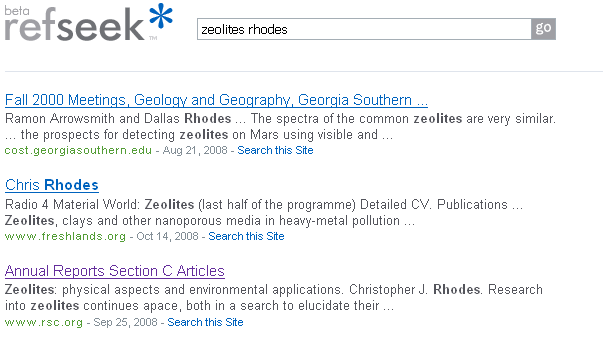
Search options are the standard double quotes around phrases, minus sign to exclude documents containing a term, plus sign to include stop words and the Boolean OR. Next to each entry in the results list is an option to “Search this Site” which does work well. Although searching is free, you may find that you have to pay for articles on some sites.
Overall, RefSeek does a reasonable job of limiting your search to more serious scientific and academic information but there are far too many omissions for it to be reliably used on its own. There are several other science search engines that I would recommend you investigate and use along side of RefSeek: see Ten Science Search Engines at
http://hwlibrary.wordpress.com/2008/09/22/science-search-engines/
